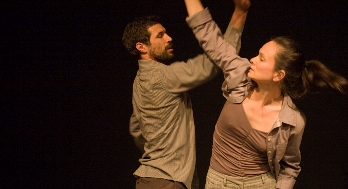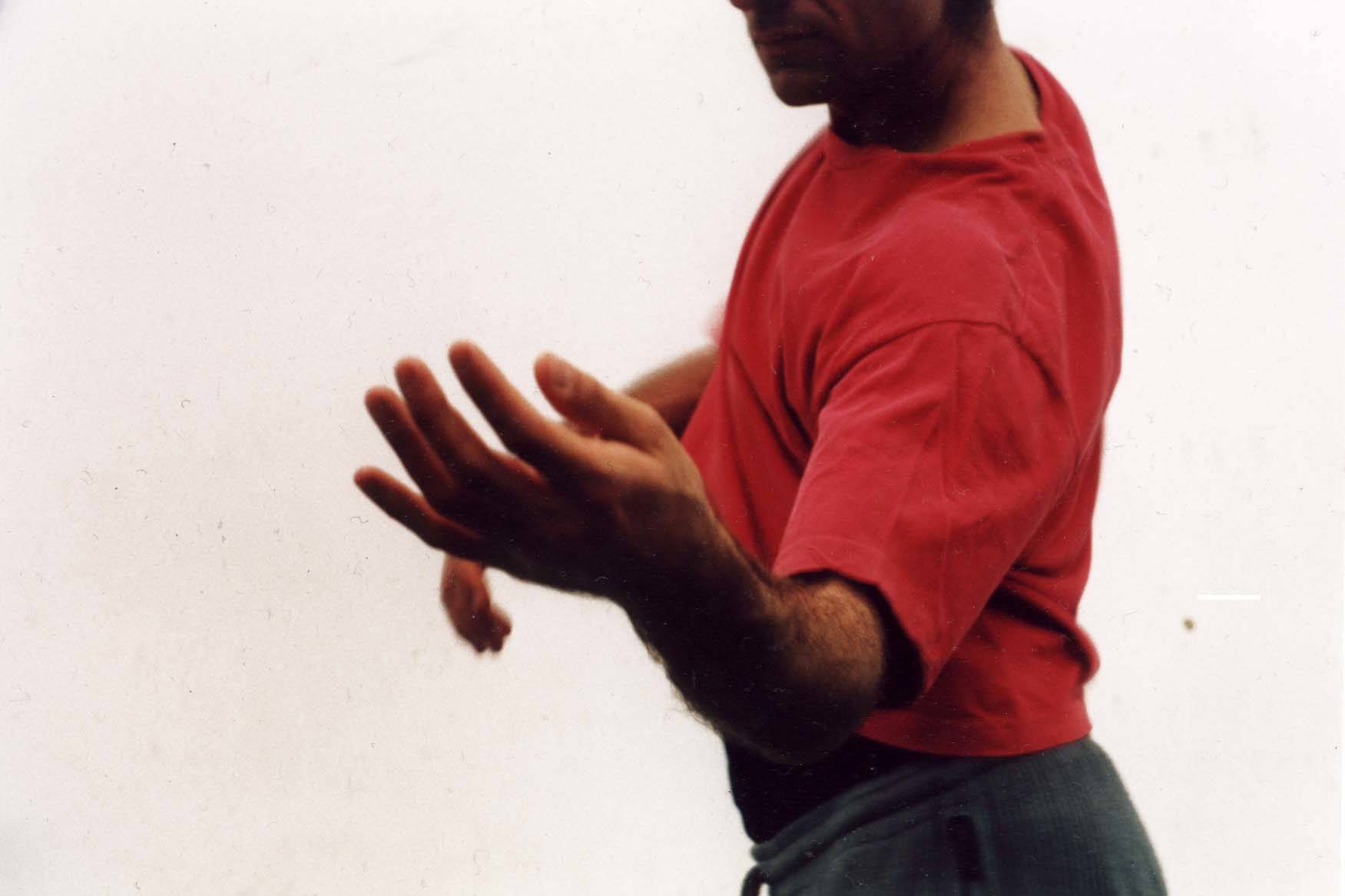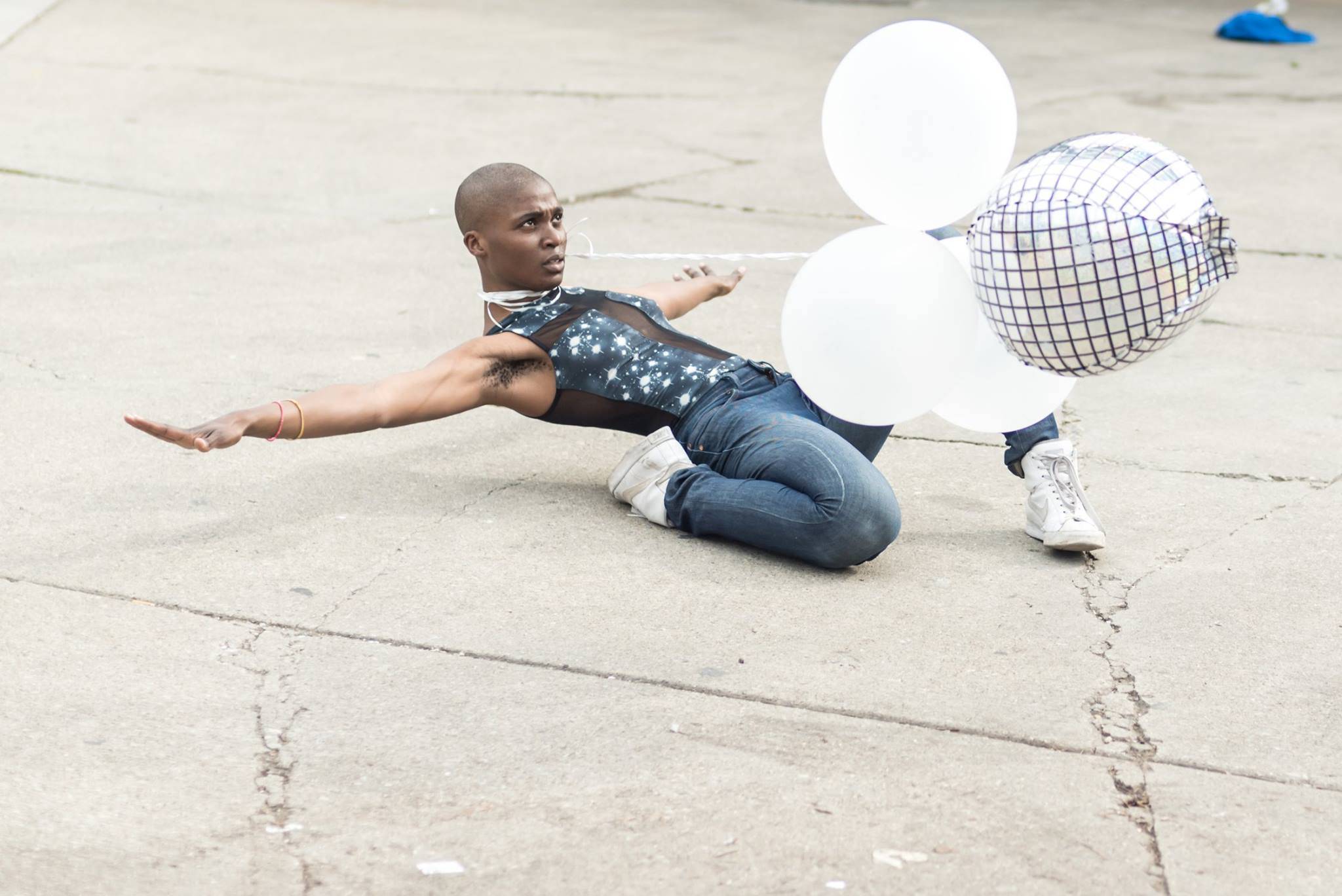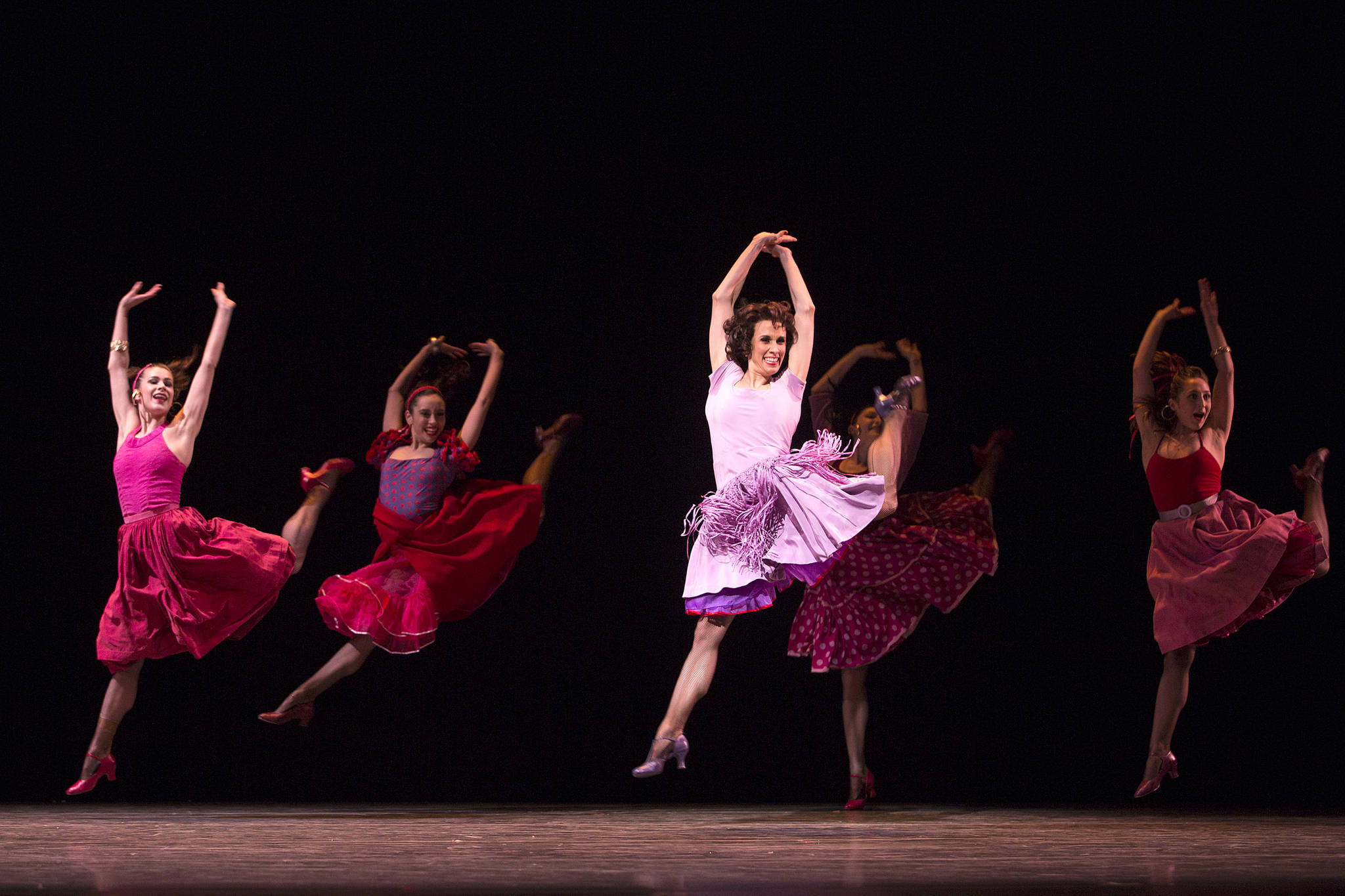Aiko Kinoshita and Aaron Swartzman have made a little home out of the former INS building on Airport Way for home|bodies. Together with designer Etta Lilienthal, they’ve filled the former immigration offices with items like an iron bed and a washstand with an old-fashioned basin and pitcher.Other elements have more metaphorical power, like a grid of water glasses covering most of the floor. In one room, a delicate forest of laundry hangs from the ceiling; slips and T-shirts flutter in the breeze from an open window.
Kinoshita and Swartzman slip into the space while we wander through. As seems to be the current fashion in local dance theater, at first they are just another pair of observers. Eventually they start to move with the eccentric fluidity of contact improvisation, where the vertical dimension is just one of many options.
Kinoshita threads her way through the water glasses carefully, reaching the wall and remaining still for quite some time, as if she’d passed a gauntlet. Gradually she slides her hand until she is stretched high, only to slowly arch back and begin a long series of twists and tilts before reaching the floor. Meantime, Swartzman weaves around the hanging shirts like a maze—sometimes careful not to touch anything, other times setting the laundry swinging as he wheels and tilts. Eventually they meet in the bedroom for a long duet that veers between tenderness and mild exasperation. The old-fashioned props and the ongoing rain sounds in Amy Denio’s score make it feel as if time is suspended.
But just when they’ve established this dreamy world, they leave, and the audience is led into a new space, set up more as a traditional theater, with a fab-’50s apartment “onstage.” The tempo picks up and the accents are much brighter as Kinoshita and Swartzman start a new day in their new digs. He runs the vacuum while she sets the table, he makes toast and pours her coffee after she gets the paper, all in looping, circular orbits around each other. They have well-practiced domestic habits—he hands her a knife with the butter already on it—but familiarity breeds a little contempt, and trouble, later on.
Kinoshita and Swartzman draw material from previous work, especially the fanciful daily tasks (where brushing teeth becomes almost baroque in its complexity) and the endurance that close-quarters living requires—making us reflect on our own relationships while we watch theirs unfold, full of pitfalls and opportunities.








